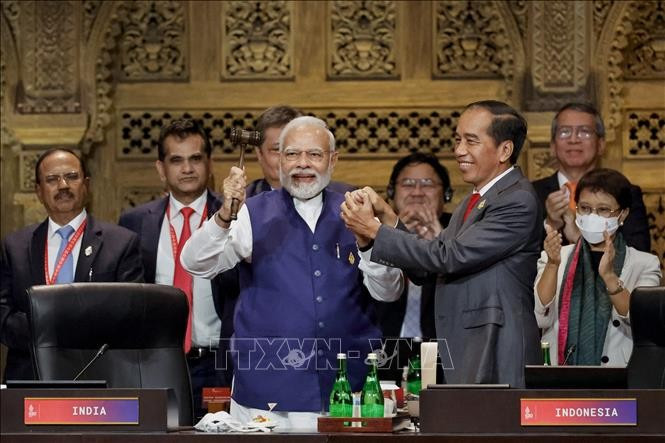At the G20 Summit, taking place in the Indian capital New Delhi, Prime Minister Narendra Modi announced that the G20 had reached a consensus on granting permanent member status to the AU. This move is seen as a significant acknowledgement of Africa's growing importance. The AU has advocated for full membership for seven years.
Immediately after the G20's decision, the Arab League (AL) also expressed its desire to soon "follow" the AU and join the G20. In a statement, AL Secretary-General Ahmed Aboul-Gheit welcomed the G20 leaders’ decision on AU’s entry into the group. He expressed hope that the pan-Arab organisation would enjoy the same status.
Aboul Gheit said the move was a positive step that will benefit both sides and solidify the role of African countries in global economic development.
He added that it will boost the continent’s ability to contribute to resolving key global issues, such as climate change, and energy and food security.
The G20 is an intergovernmental forum including members from 19 of the world’s leading developed and emerging industrial countries and the European Union (EU). The G20 members account for more than 85% of the world’s gross domestic product (GDP), over 75% of global trade and 70% of the world's population.
Meanwhile, the AU officially has 55 members, a GDP of 3 trillion USD and a population of 1.4 billion people.
Previously, the BRICS Summit held at the end of August, in South Africa, also decided to expand the bloc by admitting six countries, bringing the total number of members to 11.
With this decision, six countries from Latin America, Africa and West Asia, including Argentina, Egypt, Ethiopia, Iran, Saudi Arabia and the United Arab Emirates (UAE), will officially become BRICS members in early 2024.
Host South Africa also shared information that up to 40 countries have expressed interest in joining BRICS, of which 22 countries have made an official offer.
Brazilian President Luiz Lula da Silva proudly said that the interest of other countries to join the BRICS organisation showed how relevant its pursuit of a new world economic order is.
The Brazilian leader affirmed that this bloc "remains open to new candidates".
In an online speech at the BRICS Summit, Argentine President Alberto Fernandez expressed his country's desire to join the BRICS. “The BRICS constitute a platform with enormous capabilities, to discuss and implement an agenda for the future, that will lead us to a better and more just time. Argentina wants to become part of that space and offer its contributions as a member of it ”, he added
The leader of the South American country said that the expansion of BRICS represents the emergence of the multipolar trend in a volatile world.
Starting with four countries including Brazil, Russia, India and China in 2009, BRICS added the presence of South Africa a year later. With the admission of six new members, BRICS will span over 48.5 million square kilometres of territory, have 3.6 billion people (equivalent to 45% of the total global population), with a GDP of about 65 trillion USD (accounting for 37% of world GDP).
G20 and BRICS leaders announced that they are still open to the possibility of admitting new members to enhance the role, inclusiveness and influence of these groups. Clearly, this is the trend that regional and international organizations are aiming for in the context of many changes in the world.
















